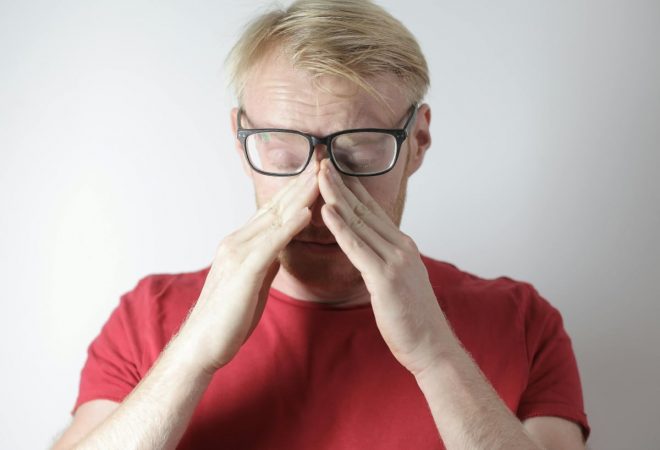Navigating social situations can be daunting for individuals struggling with attention deficit hyperactivity disorder (ADHD) or social anxiety disorder (SAD). Both conditions can significantly impact mental health and well-being, particularly when social interactions are at the forefront. ADHD is a neurodevelopmental disorder characterized by symptoms such as inattention, impulsivity, and distractibility, which can hinder effective communication and social skills. On the other hand, social anxiety disorder, often referred to as social phobia, involves an intense fear of social settings and a heightened sense of self-consciousness, making even routine social events overwhelming.
For many individuals, the comorbidity of ADHD and social anxiety exacerbates challenges in social settings. Overlapping symptoms, such as difficulty interpreting social cues and managing executive functioning, can create barriers to meaningful connections. These struggles are not limited to adolescents but extend into adulthood, where adult ADHD and ongoing social anxiety symptoms can interfere with daily life, work, and relationships. Understanding the prevalence and impact of these mental health conditions is the first step toward developing effective coping strategies and finding a path to improved social and emotional health.
The Relationship Between Social Anxiety and ADHD
ADHD and social anxiety often coexist, creating unique challenges for individuals navigating both conditions. While ADHD primarily affects attention, impulse control, and executive functioning, social anxiety focuses on an intense fear of social situations and negative self-perception. Despite their differences, these disorders frequently overlap, with symptoms such as difficulty interpreting social cues, low self-esteem, and challenges in social interactions. Understanding the distinct characteristics of each condition can shed light on how they influence one another and complicate daily life.
ADHD
Attention deficit hyperactivity disorder (ADHD) is a neurodevelopmental disorder that affects both children and adults, characterized by inattention, impulsivity, and, in some cases, hyperactivity. Individuals with ADHD often experience difficulty maintaining focus, managing tasks, and regulating emotions. These challenges can extend into social settings, where impulsive behaviors, distractibility, and struggles with reading social cues may lead to misunderstandings and strained relationships. ADHD is further categorized into subtypes, including predominantly inattentive, predominantly hyperactive-impulsive, and combined presentations. A diagnosis of ADHD is typically made by a mental health professional, such as a psychiatrist or psychologist, using criteria established by the American Psychiatric Association.
Social Anxiety
Social anxiety disorder, or social phobia, is characterized by an intense fear of judgment, embarrassment, or rejection in social situations. This condition often manifests as avoidance of social events, heightened self-consciousness, and physical symptoms like panic attacks or excessive fidgeting. Individuals with social anxiety may struggle with negative self-talk and difficulty interpreting social cues, which can exacerbate feelings of isolation and low self-esteem. Unlike generalized anxiety disorder, social anxiety focuses specifically on interactions within social settings, making even routine social engagements a source of stress. Effective treatments for social anxiety often include cognitive behavioral therapy (CBT), exposure therapy, and techniques like deep breathing to help individuals overcome their intense fear and regain confidence.
Symptoms of Overlapping ADHD and Social Anxiety
When ADHD and social anxiety occur together, their symptoms can interact in ways that amplify challenges in daily life. While each condition has its unique characteristics, there are several overlapping symptoms that make it difficult for individuals to navigate social interactions and maintain mental health.
Symptoms of ADHD
- Inattention
- Impulsivity
- Hyperactivity
- Distractibility
- Difficulty with executive functioning
- Fidgeting
Symptoms of Social Anxiety
- Intense fear of social situations
- Avoidance of social events
- Negative self-talk
- Physical symptoms like sweating or shaking
- Difficulty maintaining eye contact
- Overthinking interactions
Overlapping Symptoms
- Difficulty interpreting social cues
- Low self-esteem
- Challenges in social interactions
- Feeling self-conscious in group settings
- Struggles with impulse control during conversations
Coping Strategies for ADHD and Social Anxiety
Managing ADHD and social anxiety requires tailored coping strategies that address both individual symptoms and their overlapping challenges. Whether through professional interventions or self-help techniques, individuals can develop tools to navigate daily life and social situations with greater ease. By adopting personalized approaches to improve social skills, build self-confidence, and regulate emotions, individuals can enhance their overall well-being and quality of life.
Practice Mindfulness
Mindfulness techniques, such as meditation and deep breathing, can help individuals stay grounded and reduce feelings of overwhelm. For those with ADHD, mindfulness aids in improving focus and impulse control, while individuals with social anxiety can use it to manage self-consciousness and negative self-talk during social situations.
Cognitive Behavioral Therapy (CBT)
CBT is an evidence-based therapy that helps individuals identify and challenge negative thought patterns. For ADHD, CBT can address issues like procrastination and impulsivity, while for social anxiety, it provides tools to overcome the intense fear of judgment and develop healthier perspectives on social interactions.
Build Social Skills Gradually
Taking small steps to engage in social interactions can be a helpful strategy. Start with low-pressure situations, like talking to a trusted friend, and gradually move to more challenging environments. This approach helps individuals build confidence and practice interpreting social cues in manageable settings.
Create a Structured Routine
For individuals with ADHD, a structured routine helps improve executive functioning and reduces the chaos of daily life. By scheduling regular breaks and setting specific goals, individuals can also alleviate some of the stress caused by social anxiety when preparing for social events or interactions.
Utilize Coping Mechanisms in Social Settings
Coping mechanisms, such as rehearsing conversations, using grounding techniques, or focusing on positive affirmations, can help ease anxiety in social situations. These strategies are particularly useful for individuals managing overlapping symptoms of ADHD and social anxiety.
Seek Professional Support
A mental health professional, such as a psychiatrist or therapist, can provide tailored treatment options. This might include therapy, medications like norepinephrine reuptake inhibitors, or a combination of approaches to address the unique needs of ADHD and social anxiety.
Treatment Options for ADHD and Social Anxiety
Effective treatment for ADHD and social anxiety often involves a combination of therapy, medication, and lifestyle changes tailored to address the symptoms of both conditions. By targeting the unique challenges presented by each disorder and their overlapping effects, individuals can achieve better emotional regulation, improved focus, and greater confidence in social situations.
Medication Management
Medications can be highly effective in treating both ADHD and social anxiety. For ADHD, stimulants such as methylphenidate or non-stimulants like norepinephrine reuptake inhibitors can improve focus and reduce impulsivity. For social anxiety, selective serotonin reuptake inhibitors (SSRIs) or beta-blockers may help manage symptoms of intense fear and panic in social settings.
Cognitive Behavioral Therapy (CBT)
CBT is a cornerstone treatment for both ADHD and social anxiety. For ADHD, CBT can help individuals develop better organizational and time management skills, while for social anxiety, it focuses on reframing negative self-talk and gradually exposing individuals to anxiety-inducing situations in a safe and controlled way.
Exposure Therapy
Exposure therapy is particularly beneficial for those with social anxiety. This approach involves gradually facing feared social situations to reduce avoidance behaviors and build confidence. For individuals with overlapping ADHD, exposure therapy can be paired with techniques to manage impulsivity or inattentiveness during social interactions.
Lifestyle Changes
Healthy lifestyle adjustments can complement other treatment options. Regular physical activity, a balanced diet, and consistent sleep patterns improve overall mental health and help manage symptoms of both ADHD and social anxiety. Practices like mindfulness and yoga can also reduce stress and enhance focus.
Group Therapy
Group therapy provides a supportive environment for individuals to share their experiences and practice social interactions in a safe space. This treatment option is particularly beneficial for managing the social aspects of both ADHD and social anxiety, fostering a sense of community and mutual understanding.
Psychiatric Support
Working with a psychiatrist ensures a comprehensive approach to treatment. A psychiatrist can evaluate the severity of ADHD and social anxiety, recommend appropriate medications, and collaborate with therapists to create a holistic treatment plan tailored to individual needs.
Seek Help with Safe and Sound Treatment
At Safe and Sound Treatment, we understand the challenges of living with ADHD, social anxiety, or both. Our outpatient mental health treatment programs in Costa Mesa are designed to provide personalized care, addressing the unique needs of each individual. Whether you’re seeking therapy, support for co-occurring conditions, or guidance on managing symptoms, our experienced team is here to help you find a path to healing and improved well-being.
Don’t let ADHD or social anxiety hold you back from living a fulfilling life. Contact Safe and Sound Treatment today to take the first step toward a healthier and more confident future. Our compassionate professionals are ready to provide the support and tools you need to thrive. Reach out to us now to learn more about our services and start your journey to recovery.













